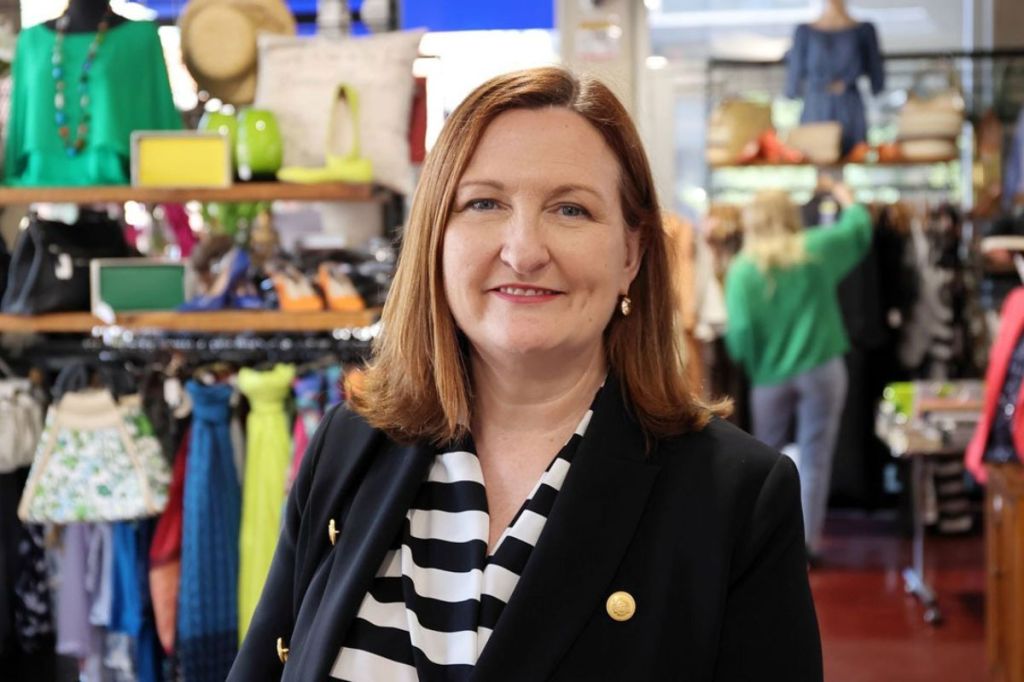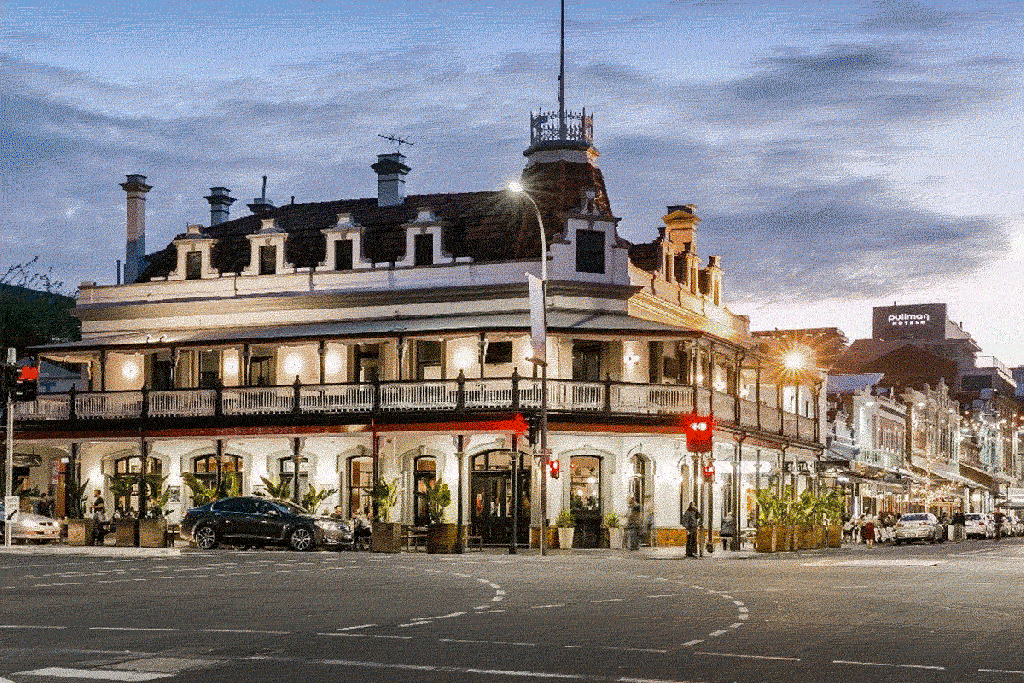Santa Claus deflation watch | Ex-minister’s new gig | Frustration on North Terrace
This week, InSider turns up the heat on an old Rundle Mall friend and contemplates life after politics.

The big boy is back – but for how long?
InSider’s festive spirits got a lift this week when we saw Adelaide City Council’s inflatable Santa Claus pop up in Rundle Mall. In our eyes, the holiday season doesn’t start until the cartoonishly big St Nick makes his return to Adelaide’s premier shopping strip.
But Santa’s 2024 blow-up comes with increased scrutiny after a less-than-impressive 2023.
To recap, this time last year Santa drew headlines (mainly from this column) when he was found less-than-pumped-up to be in Rundle Mall. Such was the concern over Santa’s sorry state that his deflation was raised in a Town Hall meeting.

Santa in 2023
Council’s Santa department acted swiftly: days later, Father Christmas was re-inflated and protected with new perimeter roping, a security camera notice and a sign saying, “do not sit or jump on Santa”.
This did little to deter the Grinches that live among us: a week later, the big guy in red was found in deflated distress again, this time covered in a garbage bag-coloured tarpaulin resembling what we described at the time as a “standout display of Christmas cheer”.

Santa in 2023
This year, in a bold vote of confidence in the Christmas spirit, council’s Santa handlers have left their man without any protective fencing or warning signs.
So far, we’re pleased to report no PSI-related problems, although a British tourist taking photos of him did remark to InSider that the inflatable creation was “mostly crap”. Better crap than deflated, we say.
You might like
InSider devoted three weeks of coverage to our Santa last year and doesn’t plan on backing off this Christmas. Best of luck, big man.
Conlon back in the hot seat
Also facing renewed scrutiny this week is former Labor minister Patrick Conlon.
The long-time transport and infrastructure minister in the Rann and Weatherill governments has been given the unenviable task of sorting out the finances of the deeply troubled District Council of Coober Pedy, with the Malinauskas Government this week appointing him as the council’s principal administrator.
Conlon has kept a relatively low profile since leaving politics in 2014, dabbling in some legal and lobbying work but keeping plenty of spare time. Contacted by InSider today, he was in the middle of what sounded like a gruelling climb up Mount Lofty.
“Life’s a lot easier – I’ve been living comfortably,” Conlon said of life after parliament.
“But I think I do miss the sort of challenge of politics, and this is an opportunity to do something difficult and worthwhile.”
Difficult is one word for it.
Coober Pedy’s council has been suspended as an elected body for the last five years after an Ombudsman report found it had been responsible for “one of the most serious examples of maladministration” he had ever seen by entering into a $198 million electricity deal with a private company without going to tender.

Patrick Conlon during his ministerial days.
InDaily reported last year that the council’s financial liabilities in 2021/22 represented 645 per cent of total operating income. One former Coober Pedy administrator, former Playford Council CEO Tim Jackson, described his time in the job as “extremely difficult and quite traumatic”.
InSider suggests Conlon’s new gig doesn’t fall into the category of a cushy post-politics appointment – a view he seems to agree with.
“It’s a challenge, to be absolutely frank – the solutions up there are not easy,” Conlon said.
“I was asked to consider doing it and I thought ‘Well, it’d be nice to do something worthwhile again in the public interest’.”
Stay informed, daily
Conlon will on November 12 replace Coober Pedy’s outgoing principal administrator, Geoff Sheridan, who has resigned for health and personal reasons.
Two existing administrators, Erika Vickery and John Moyle, are staying on to support Conlon.
North Terrace: a boulevard of frustration
North Terrace, described once as “Adelaide’s Avenue des Champs-Élysées”, was back in the news this week.
The state government revealed on Thursday it had purchased the Budget car rentals site on the corner of North Terrace and Frome Road to sell to a developer who can turn it into a high-rise tower project.

A hypothetical render of the type of development that could sprout up at 274-275 North Terrace. Image: supplied
But grandiose development visions on North Terrace should be treated with a degree of scepticism given the number of vacant state heritage buildings that line the street patiently waiting for a redevelopment that has never come.
Property Council SA executive director Bruce Djite pins the blame on land tax and council rates, adding: “It’s a building-by-building issue – it’s not something that’s easily solved with a legislative change or overarching policy solution.”
“A lot this stuff is just not feasible in the current environment,” he said.
Perhaps the starkest example is the old Gawler Chambers building on the corner of North Terrace and Gawler Place.
Plans first mooted in 2012 for a refurbishment and 15-storey office block behind the state heritage building have never come to fruition, and the state’s planning authorities lost patience in 2022 – denying the owners an eighth request for a planning approval extension.
“I think there’s a great deal of frustration in the community, and it’s shared by the government, about some of the sites on North Terrace – beautiful old buildings whose façade should be protected and preserved,” Planning Minister Nick Champion said on Thursday when asked about the issue.
“They shouldn’t be left empty and derelict or boarded up and have decades and decades, in some instances, of just sitting there.
“It’s time for the owners of these properties to get on board, to invest, to go through the planning system and to come up with some great quality developments that befit a great city.”
Those comments almost exactly match what Champion’s Labor predecessor, John Rau, said about North Terrace more than 10 years ago.
“We’re concerned generally about owners of buildings in the city who just sit on those buildings,” Rau told InDaily for a January 2015 article that described North Terrace as a “broken boulevard”.
“Especially if they’re sitting on vacant buildings, that don’t invest, don’t upgrade, don’t make them attractive to tenants… I can only speculate as to why they’re doing that.
“I’m seriously thinking about the issue of whether or not we should have some sort of disincentive built into the system for people who do that.”
In Adelaide, some things never change.








